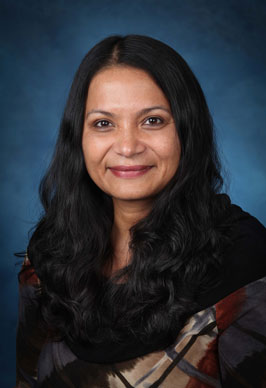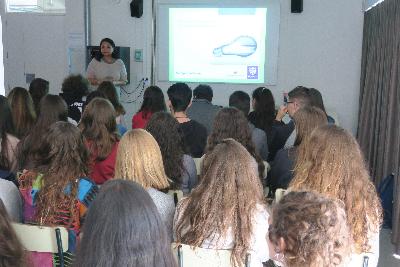Collective residencies / FEMINISMS / Olot
BIPASHA BARUAH
From Monday, 23 October 2017 to Monday, 6 November 2017

Bio
Bipasha Baruah is the Canada Research Chair in Global Women’s Issues and a tenured full professor in the Department of Women’s Studies and Feminist Research at Western University. Dr. Baruah conducts interdisciplinary research on gender, development and globalization; women and work; and social, political and economic inequality. Her research on women and property ownership and women’s employment in renewable energy has influenced policy within governments, financial institutions and NGOs. Dr. Baruah’s research appears in journals such as World Development, Feminist Economics, Development in Practice, Progress in Development Studies, Canadian Journal of Development Studies, Labor Studies, Environment and Planning, Geography Compass and Natural Resources Forum. Her 2010 book, Women and Property in Urban India, was published by the University of British Columbia Press. She contributes articles and op-eds to a variety of newspapers, magazines and blogs. Dr. Baruah also has 12 years of professional international development experience with aid agencies, development banks, NGOs, labour associations and think tanks.
Project
Concerns about environmental sustainability and fossil-fuel insecurity have motivated countries around the world to transition to clean energy supplies derived from renewables such as solar, hydro, bioenergy, geothermal and wind. Since producing and distributing clean energy is more labor-intensive than producing and distributing fossil fuels, this shift is creating new employment opportunities and addressing energy poverty in remote or under-served communities. Although there is tremendous potential to create employment in clean energy almost everywhere in the world, there is a growing concern that women, who are already severely underrepresented in the sector, will become even more marginalized if gender equity policies and programs are not proactively planned and implemented. My research project identifies similarities and differences in occupational patterns in women’s employment in clean energy in different world regional contexts, and makes recommendations for optimizing their participation.
Faber, A Wonderful Place to Accomplish Intellectually Challenging Work
The Faber Residency appealed to me because I wanted to spend dedicated time thinking about how to move forward on a research project aimed broadly at understanding how to ensure that a global low-carbon economy will be more socially just than its fossil-fuel based predecessor. I used my two weeks at Faber reflecting upon trends revealed by my research on women’s employment in renewable energy, and writing parts of a monograph on climate change and social justice. As someone with a full-time academic appointment, with research, teaching and service responsibilities, I am rarely able to carve out the space and time to work intensely on a cognitively demanding task. Through its themed residency on Feminism, Faber offered me the opportunity to make progress on an important project while connecting with a diverse array of professionals working on gender equality from various disciplinary and methodological perspectives. The Faber staff were hospitable, kind and generous. They went out of their way to ensure that the residency was a productive and stimulating experience. I highly recommend a Faber Residency to anyone who would benefit from focusing without distraction on an intellectually challenging task in a picturesque tranquil setting.

